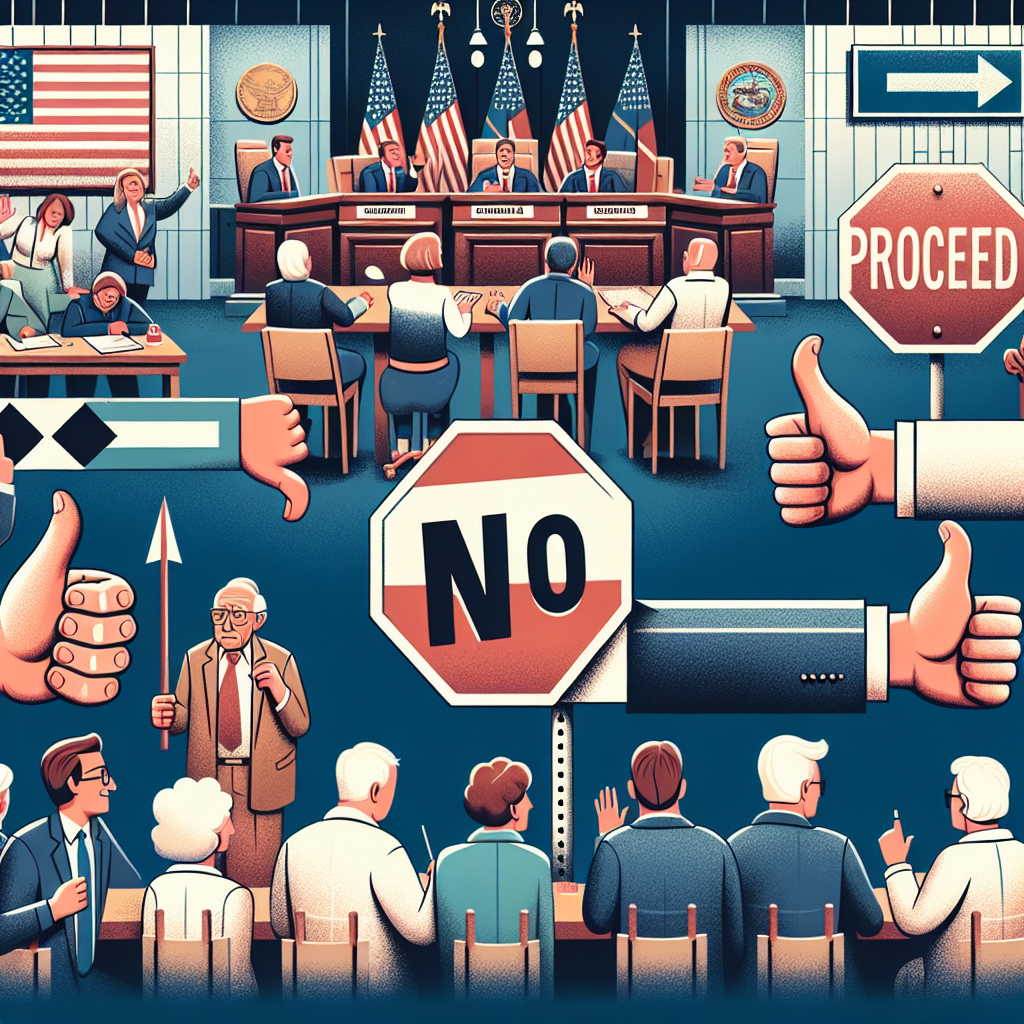North Dakota Voters Make Their Voices Heard
In an unprecedented move, North Dakota voters recently took a firm stance against changes to term limits for state lawmakers. In a statewide ballot measure, a significant majority chose to maintain the existing term limits, which restrict legislators to eight years in the House and eight years in the Senate. This decision was seen as a resounding affirmation of the voters' desire for accountability and fresh perspectives in their state legislature. However, the story doesn't end here—lawmakers have decided to forge ahead with plans to alter these very limits, raising eyebrows and questions about the integrity of the democratic process.
The vote, which took place during the recent midterm elections, saw approximately 65% of participants opposing any modifications to the term limits. This outcome was celebrated by many grassroots organizations and citizens who believe that term limits are essential for preventing career politicians from entrenching themselves in power. The voters' message was clear: they wanted to ensure that new voices and ideas could continuously flow into their legislative assembly. Despite this decisive outcome, a faction of lawmakers is now exploring ways to sidestep the will of the electorate, igniting a firestorm of controversy.
Lawmakers Defy the Will of the People
In the wake of the election results, several state legislators have expressed their intentions to push forward with legislation that may effectively negate the voters' decision. Some lawmakers have argued that the current term limits hinder experienced individuals from continuing to contribute to the state's governance. They cite the need for continuity in leadership, particularly in times of crisis, as a rationale for revisiting the issue. This perspective, however, raises concerns about the lawmakers' commitment to the democratic process and their respect for the voters' wishes.
Critics of the lawmakers' move argue that it undermines the very foundation of democracy. By attempting to circumvent the voter mandate, they risk alienating constituents and eroding public trust in the political system. "This is not just about term limits; it's about respecting the voice of the people," remarked a prominent local activist. The dynamic between elected officials and their constituents is now being tested, as residents feel increasingly frustrated by what they perceive as a disregard for their choices.
The Legal and Political Ramifications
As lawmakers debate the potential for introducing new legislation regarding term limits, questions about the legal ramifications arise. The state constitution, which outlines the procedure for enacting and amending laws, may provide a framework for legal challenges should lawmakers attempt to push through any changes. Experts suggest that the voters' decisive rejection of term limit changes could be interpreted as a mandate that lawmakers are legally bound to respect.
Furthermore, political analysts are closely monitoring the situation to assess the potential impact on upcoming elections. If lawmakers choose to ignore the voters' wishes, it could result in a significant backlash at the polls. Voter engagement may surge as constituents rally around candidates who prioritize accountability and transparency. Ultimately, the political landscape in North Dakota may shift dramatically if the current lawmakers continue to defy the electorate, setting a precedent that could resonate beyond state lines.
The Path Forward: Will the Voters’ Will Prevail?
As this situation continues to unfold, the question remains: what will be the ultimate outcome of the lawmakers' attempts to change term limits? Will the voters' voice prevail, or will lawmakers find a way to impose their will? The answer may hinge on the level of civic engagement and activism among North Dakotans in the coming months. Grassroots movements have already gained momentum, as citizens mobilize to protect the integrity of their electoral decisions.
The outcome of this saga could also serve as a litmus test for other states grappling with similar issues. If North Dakota citizens successfully resist attempts to alter the term limits against their wishes, it could inspire voters in other regions to take a stand against legislative overreach. Conversely, if lawmakers succeed, it may set a troubling precedent for how elected officials interpret and respond to the will of their constituents.
Conclusion: A Crucial Moment for Democracy in North Dakota
The situation in North Dakota is emblematic of a broader struggle between elected officials and the electorate. As lawmakers push ahead with plans to change term limits despite a clear voter mandate to the contrary, the implications for democracy are profound. Will the will of the people ultimately prevail, or will lawmakers find a way to circumvent the democratic process? Only time will tell, but one thing is certain: North Dakota voters are watching closely, ready to respond to any perceived injustices in their political landscape.
In a world where trust in government is often waning, the actions of both voters and lawmakers will undoubtedly shape the future of North Dakota's political climate. As the dust settles from this contentious battle, it serves as a powerful reminder of the importance of civic engagement and the need for elected officials to remain accountable to those they serve.

No comments yet. Be the first to comment!